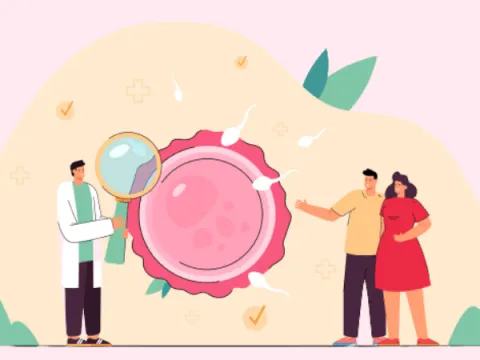After all of the effort and passion that goes into an IVF cycle, implant failure can be discouraging. Intended parents who experience recurrent implantation failure with each round eventually give up or become unwilling to invest more of their emotions in future IVF cycles.
Everything may go quickly in many situations, from egg retrieval to fertilization, as long as the mother’s health and the likelihood of implantation are both found to be high. The pregnancy, on the other hand, never seems to stick.
Nisha IVF Centre, one of the best IVF centre in Ahmedabad, provides world-class fertility treatments, including IUI, IVF, and ICSI. The clinic holds a team of the best IVF doctor in Ahmedabad.
The clinic is outfitted with cutting-edge technology that encourages safe procedures, allowing couples to achieve their dream of parenthood. If you and your partner are considering IVF, here’s everything you need to know about repeated implantation failure.
First, let’s know,
What exactly is Recurrent Implantation Failure?
Recurrent implantation failure is defined as four or more failed implantations despite success in the preceding steps. The fertilized embryo is placed into the woman’s womb for implantation after the sperm fertilizes the egg in the lab, allowing her to carry the pregnancy to term.
After the embryo has attached itself to the uterine wall, pregnancy is declared. The IVF cycle will fail if this stage is not completed, resulting in implantation failure.

Now, let’s know,
What Causes Recurrent Implantation Failure?
During the initial evaluation, the fertility expert may explain a couple of factors that could cause the IVF cycle to fail. There are several reasons for implantation failure, including:
Quality of eggs:
Low-quality eggs have a decreased chance of being successful. Because the quality of eggs decreases with age, it is more common in older women. Furthermore, women with PCOD or other reproductive difficulties may have reduced egg quality.
Uterine receptivity issue:
Implantation failure can be caused by anatomical flaws, uterine position changes, hormonal imbalances, or endometrial lining problems. Until the particular issue is identified and treated, IVF cycles will fail.
Genetic defects:
Implantation failure during IVF treatment can be caused by chromosomal abnormalities in the embryo. PGD and PGS tests, which screen embryos for various genetic illnesses to implant the healthiest embryo, can uncover genetic issues.
Lifestyle factors:
Women who are overweight or underweight are more likely to have IVF failure. Long-term smoking habits can potentially interfere with fertility and IVF treatment success.
Malefactors:
Damage and sperm fragmentation can result from genetic defects in sperm DNA, leading to repeated implantation failure. Chromosomal defects that prevent implantation in the womb could be another factor.
Now, let’s discuss,
What are the Treatments for Recurrent Implantation Failure?
Correcting endometriosis, weight, and other factors contributing to unsuccessful implantation can aid in achieving success following recurrent implantation failure.
An ERA – Endometrial Receptivity Array test can also be used to see if the endometrial lining is ready to take the embryo. The test also aids in determining the best time for implantation to maximize the chances of success.
Recurrent Implantation Failure does not have to spell the end of your hopes of becoming a parent. Instead, it indicates a problem that must be addressed to alleviate symptoms and improve the chances of your future IVF cycle’s success.
A thorough examination by a fertility expert in the best fertility clinic aids in the diagnosis of the causes of recurrent implantation failure, following which treatment can be planned. After a recurrent implantation failure, your fertility expert will walk you through your alternatives.
If you face trouble conceiving, consult an experienced fertility specialist in Ahmedabad to seek the best infertility treatment.


